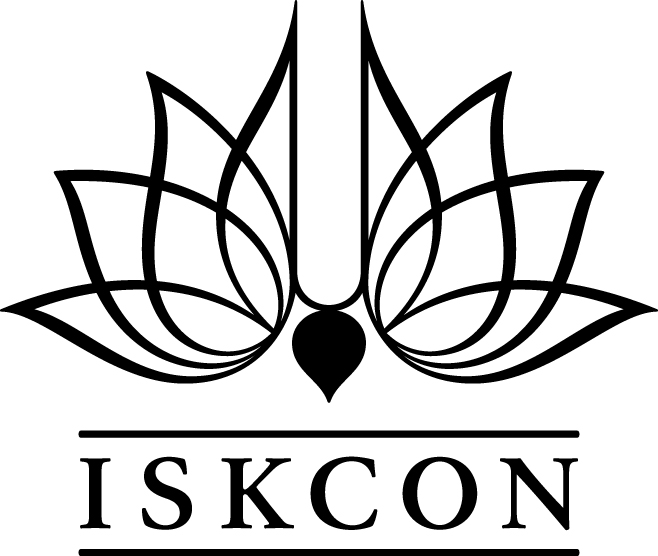About ISKCON
The International Society for Krishna Consciousness (ISKCON) was established in 1966 by His Divine Grace A.C. Bhaktivedanta Swami Prabhupada (Srila Prabhupada). ISKCON has since developed into a worldwide confederation of 10,000 temple devotees and 250,000 congregational devotees.
Better known as the Hare Krishna movement, ISKCON is comprised of more than 350 centres, 60 rural communities, 50 schools and 60 restaurants worldwide.
The mission of this non-sectarian, monotheistic movement is to promote the well-being of society by teaching the science of Krishna consciousness according to Bhagavad-Gita and other ancient scriptures.
ISKCON is unique in many ways. No other organization has done so much to introduce the timeless wisdom of the Vedas to the western world. At a time when a modern man is immersed in great difficulties – threat of nuclear war, breakdown of families, polluted environment, erosion of morality, frustration and inner emptiness – people are searching after alternative, more permanent solution to the problems of life. Increasingly eternal spiritual values which are the inherent features of a very human nature become more and more vital all over the world.
ISKCON is at the forefront of this spiritual revolution. In practically every country of the world, devotees of ISKCON work selflessly to teach the eternal message of the Vedas. The Society publishes the Vedic literatures, like Bhagavad Gita and Bhagavatam, in 64 languages, and, in just three decades, has distributed about 300 million books worldwide. Besides that, beautiful mandirs serve as oasis of spiritual solace have been established in most major cities of the planet.
Most of ISKCON centers operate a program for relief for the poor people under the title “Food for Life”. These programs have been highly commended by government officials throughout the world.
However the main feature that makes ISKCON so special is that it attracts dedicated volunteers from all creeds to give their full service to this vital mission reviving the greatest culture of the world.
-
Mission
Srila Prabhupada gave a clear mission statement for ISKCON which is outlined in the following seven points.
The Seven Purposes of ISKCON
- To systematically propagate spiritual knowledge to society at large and to educate all people in the techniques of spiritual life in order to check the imbalance of values in life and to achieve real unity and peace in the world.
- To propagate a consciousness of Krishna (God), as it is revealed in the great scriptures of India, Bhagavad-gita and Srimad-Bhagavatam.
- To bring the members of the Society together with each other and nearer to Krishna, the prime entity, thus developing the idea within the members, and humanity at large, that each soul is part and parcel of the quality of Godhead (Krishna).
- To teach and encourage the sankirtana movement, congregational chanting of the holy name of God, as revealed in the teachings of Lord Sri Caitanya Mahaprabhu.
- To erect for the members and for society at large a holy place of transcendental pastimes dedicated to the personality of Krishna.
- To bring the members closer together for the purpose of teaching a simpler, more natural way of life.
- With a view towards achieving the aforementioned purposes, to publish and distribute periodicals, magazines, books and other writings.
-
Philosophy
The Vedic scriptures state that spiritual life begins when one inquires into the nature of the absolute truth, the Supreme Godhead. Gaudiya Vaisnavas are monotheists and know the personality of Godhead as Krishna, the All-attractive. But it is also recognised that the Supreme has unlimited names such as Rama, Buddha, Vishnu, Jehovah, Allah, etc. The ultimate goal of Gaudiya Vaisnavism is to develop a loving relationship with the Supreme Godhead.
To understand knowledge of self-realisation one must approach a genuine spiritual master The Vedas also tell us that the understanding of the self, as being non-material or spiritual by nature, is the preliminary stage of realisation of the absolute truth. To understand knowledge of self-realisation one must approach a genuine spiritual master, just as one learns the essence of any subject from a perfected practitioner.
The congregational chanting of the maha-mantra, Hare Krishna, Hare Krishna, Krishna Krishna, Hare Hare, Hare Rama, Hare Rama, Rama Rama, Hare Hare, as promoted by Sri Caitanya, is accepted by the Vedas as the most effective means of self-purification in this age. The Vedas describe the mantra as a prayer to the Lord, “Please Lord, engage me in Your service”.
Devotees may accept formal initiation into the chanting of the Holy Name vowing to abstain from intoxication, gambling, illicit sexual connections and the eating of meat, fish or eggs. ISKCON members believe indulgence in the aforementioned activities disrupts physical, mental and spiritual well-being, and increases anxiety and conflict in society. At the time of initiation devotees also agree to chant a prescribed number of mantras each day.
-
Structure
Communities
Most ISKCON members practise Krishna consciousness in their homes and live and work in the general community. They also congregate in temples for worship. Most temple-based members are in training, or serve as clergy engaged in ministerial and missionary work. Some members also help maintain ISKCON rural communities throughout the world.
Governing Body Commission (GBC)
In 1970 Srila Prabhupada formed a Governing Body Commission (GBC) to help manage an expanding ISKCON. Before Srila Prabhupada passed away in 1977, he requested that executive authority for ISKCON be passed to this Commission. The GBC decides ISKCON’s major strategies and guidelines by democratic voting and in consultation with Temple Presidents and other leaders.
Bhaktivedanta Book Trust (BBT)
Working tirelessy over 12 years, Srila Prabhupada managed to write over 70 volumes of books – translations of Vedic scriptures into English and extensive commentaries on them.
Established in 1972 for publishing Srila Prabhupada’s works, The Bhaktivedanta Book Trust (BBT) has become the world’s largest publisher and distributor of books on Indian philosophy and religion.To date, the BBT has published over 500 million books and magazines in more than 60 languages.
-
History
The International Society for Krishna Consciousness was founded by His Divine Grace A.C. Bhaktivedanta Swami Prabhupada in 1966. It belongs to the Gaudiya Vaisnava tradition, a devotional tradition based on the teachings of Bhagavad-gita and Srimad-Bhagavatam.

The precepts and practices of ISKCON were taught and codified by the 15th century saint and religious reformer Sri Caitanya Mahaprabhu and his principle associates, the Six Goswamis of Vrindavana.
Sri Caitanya, whom devotees revere as a direct incarnation of Krishna, gave a powerful impetus for a massive bhakti (devotional) movement throughout India. Under his direction hundreds of volumes on the philosophy of Krishna consciousness were compiled. Many devotees have followed in the line of Sri Caitanya Mahaprabhu including, in the 19th century, an outstanding Vaisnava theologian, Bhaktivinoda Thakura who brought Krishna consciousness to a modern audience.
Bhaktivinoda’s son, Bhaktisiddhanta Sarasvati Goswami, became the guru of Srila Prabhupada and instructed him to spread Krishna consciousness in the West.

